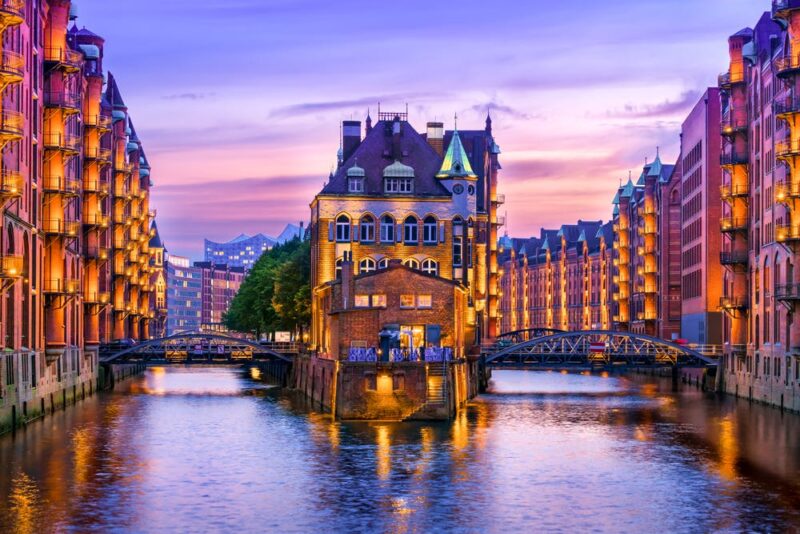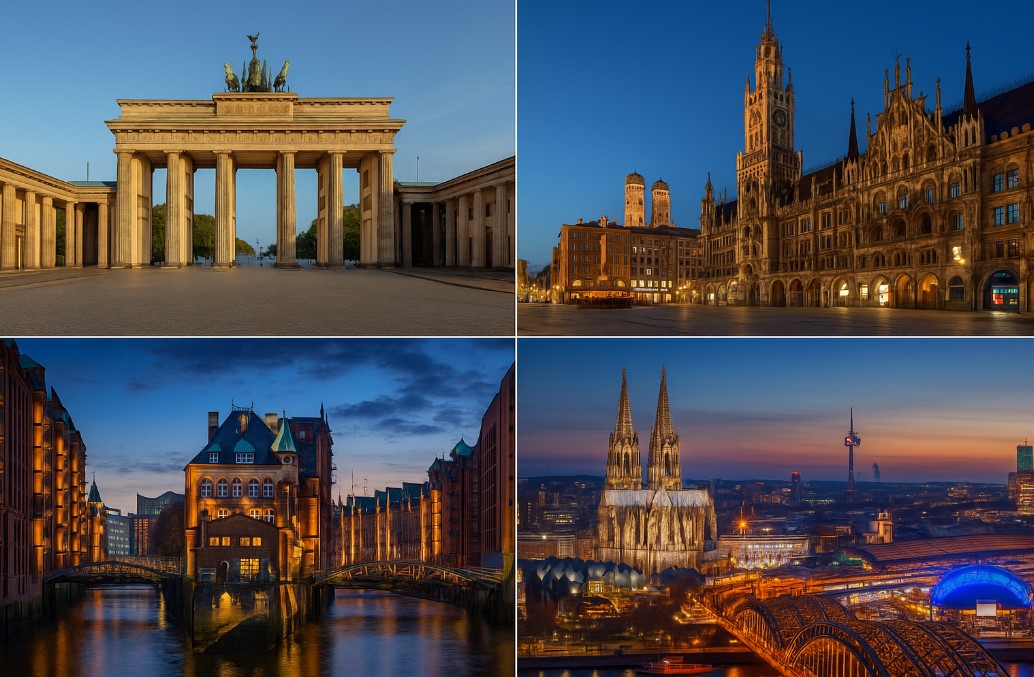Germany’s cities have always stood out for their mix of history, culture, innovation, and just the right amount of eccentricity. But in 2025, with travel trends shifting, sustainability gaining priority, and travelers craving deeper experiences not just landmarks the question becomes: which German cities are still truly worth your time?
Spoiler alert: there are plenty. But not always the ones you’d expect.
Key Highlights
- Berlin remains a cultural powerhouse, but with a more grounded and local vibe in 2025.
- Hamburg has redefined cool with its harbor culture and creative spaces.
- Leipzig is Germany’s most exciting underdog city right now.
- Munich blends luxury and tradition while staying effortlessly modern.
- Nuremberg and Freiburg stand out for their livability and authenticity.
- Escort service München is discreet, professional, and part of the city’s high-end offerings.
Berlin – Less Party, More Purpose
If you’ve visited Berlin a decade ago, you probably remember a city that never slept, filled with thumping techno clubs and graffiti-covered playgrounds of freedom. That spirit hasn’t vanished, but it’s evolved.
In 2025, Berlin is still magnetic only now, it feels more mature. Kreuzberg and Neukölln still buzz, but there’s a visible shift toward creativity with purpose. Think independent bookstores hosting political forums, art collectives restoring post-war architecture, and food markets spotlighting sustainable eating.
For travelers, that means experiences that go beyond the Brandenburg Gate. Neighborhood walks in Prenzlauer Berg, hidden garden cafes, and community-run events are the real draw now.
Worth it in 2025? Absolutely. Especially if you enjoy culture with an edge that’s less about nightlife, and more about meaning.
Munich – Tradition With Style
Munich is one of those cities that wears its tradition like a designer coat. It’s refined, clean, structured but there’s more beneath the surface.
What makes Munich worth visiting in 2025 is how effortlessly it marries old-world charm with modern comfort. You can start your day with a walk through the English Garden, grab a pretzel and coffee at Viktualienmarkt, visit BMW Welt, and wrap up with rooftop cocktails overlooking the Alps.
And if you’re looking for a touch of exclusivity after a long day exploring, escort service München adds a layer of privacy and luxury many high-end travelers appreciate. Munich is a city that knows how to treat its visitors well whether it’s through upscale hospitality or discreet premium services.
Pro tip: Munich’s public transport is efficient and clean, so you don’t need a car to enjoy the best parts of the city.
Hamburg – The Harbor City With Soul

Hamburg has always been cool, but in 2025 it’s smart-cool. This port city has taken its maritime heritage and layered it with creativity and resilience. You’ll notice it in how the HafenCity district mixes old warehouses with futuristic architecture, or in the way the Elbphilharmonie stands proudly by the water modern but deeply rooted in the city’s history.
St. Pauli’s rebellious energy is still alive but focused more on social change and the arts than cheap thrills. And let’s not forget the food scene Vietnamese, Turkish, and Syrian kitchens are reshaping what “German cuisine” even means.
Still worth visiting? Definitely, especially if you enjoy cities that evolve with character and grit.
Leipzig – Germany’s Creative Capital in the Making
Leipzig has been quietly transforming over the last few years. While Berlin gets the fame, Leipzig is where many artists, writers, and startups have set up shop.
This city is affordable, walkable, and loaded with independent cafes, vintage shops, and small galleries. The Plagwitz district feels like a miniature Berlin from 2005 only now it’s got better coffee and a stronger sense of community.
In 2025, Leipzig is one of those places where you don’t need a long to-do list. Just being there is part of the experience. Rent a bike, follow the canal paths, or sit at a café and strike up a conversation.
Is it worth the train ride? More than worth it. Especially for travelers who value depth over sightseeing checklists.
Nuremberg – Underrated History and Local Charm
Nuremberg often gets boxed in as a “history city” because of its medieval core and WWII significance. But there’s more. It’s walkable, friendly, and full of identity.
By 2025, the city has invested heavily in preserving local culture. That means fewer tourist traps and more chances to stumble into a street performance, a farmer’s market, or a local beer garden where you’re the only non-German speaker around.
For those who love architecture and stories behind places, Nuremberg offers castles, cathedrals, and museums that feel personal and approachable without overwhelming crowds.
Still worth visiting? Yes, especially for travelers who like authentic cities with a quiet pulse.
Freiburg – The Green Heart of Germany
View this post on Instagram
If you’re after a slower pace, cleaner air, and a sustainable way to explore, Freiburg should be high on your 2025 list. Nestled near the Black Forest, it’s one of Germany’s greenest cities literally and metaphorically.
Biking is the default here. Locals take pride in solar-powered homes and waste-free cafes. But don’t let the eco-focus fool you Freiburg is full of life. The old town has colorful facades, buzzing beer gardens, and markets filled with local produce.
It’s also one of the sunniest spots in Germany, making it perfect for long walks and wine tasting tours in the surrounding countryside.
Why go? It’s refreshing literally and figuratively. Great for anyone looking to slow down while still soaking up genuine culture.
Honorable Mentions You Might Not Expect
Here are a few lesser-known cities that surprised me in recent trips and might just be your new favorite stop in Germany:
- Bamberg – A UNESCO World Heritage town with dreamy canals and incredible smoked beer.
- Heidelberg – Romantic, youthful, and picture-perfect thanks to its university vibe and hilltop castle.
- Dresden – Rebuilt and proud, with baroque beauty and a thriving creative district in Neustadt.
If you’re mapping out your itinerary and feel like going off the beaten path these cities won’t disappoint.
Final Thoughts
In 2025, German cities are not about ticking boxes or racing from sight to sight. They’re about soaking up layers of culture, talking to locals, finding rhythm in train rides, beer gardens, and spontaneous discoveries.
Whether you’re drawn to Berlin’s evolving art scene, Munich’s refined blend of culture and comfort, or the raw creativity of Leipzig there’s a city in Germany waiting to surprise you.
And maybe that’s the real travel trend of 2025: less spectacle, more connection.

